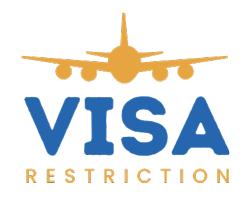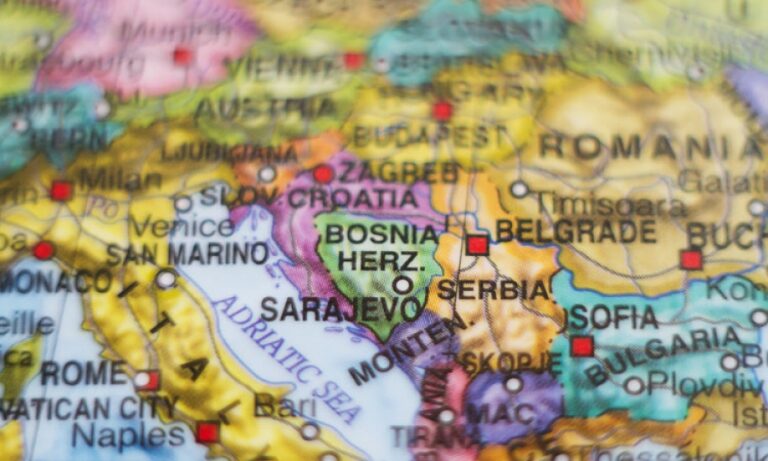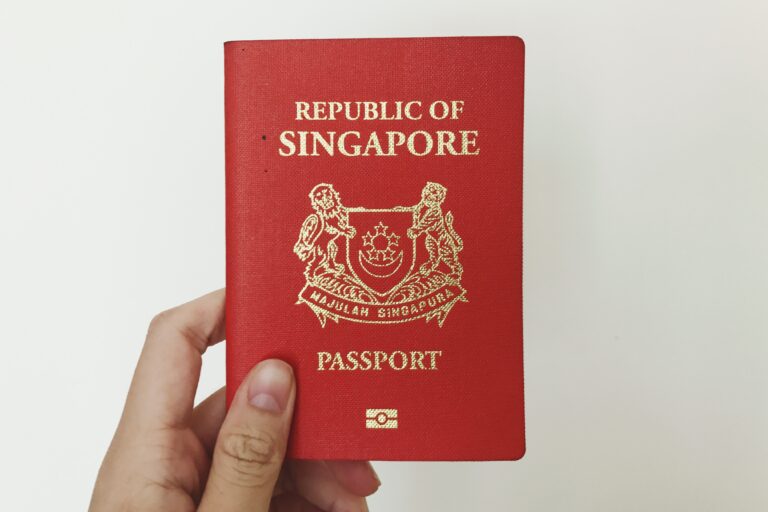Navigate Your Vacation Lingo: Essential Vacation Glossary Guide
Essential Tourist Terminology
Understanding essential tourist terminology can greatly enhance your travel experience. This vacation glossary guide will help you navigate various terms and phrases commonly used by travelers.
Defining Tourist Vocabulary
To start, let’s define some of the key terms you might come across during your travels:
- Accessible Tourism: Ensures high availability of destinations, accommodations, attractions, products, and services for all individuals or groups. (TravelWTA)
- Adventure Travel: Involves exploration with perceived risks and specialized skills, aiming for physical exertion and new experiences. (TravelWTA)
- Cultural Tourism: Tourism concerned with a country or region’s culture, lifestyle, history, art, and other important aspects. (TravelWTA)
- Budget Travel: Traveling with a focus on minimizing expenses, often leveraging discounts and affordable options for accommodations, food, and activities.
- Eco-Tourism: A form of sustainable travel that supports the conservation of natural environments and local communities.
- Staycation: A vacation spent in one’s home country or at home, exploring local attractions and activities.
For a more extensive list of terms, consider exploring our tourist glossary terms.
Key Phrases for Travelers
Here are some key phrases that can be useful in various travel scenarios:
| Phrase | Translation | Usage |
|---|---|---|
| Where is the nearest restroom? | Où sont les toilettes les plus proches? (French) | Asking for restrooms |
| How much does this cost? | ¿Cuánto cuesta esto? (Spanish) | Inquiring about prices |
| Can you help me? | Können Sie mir helfen? (German) | Requesting assistance |
| I would like a menu, please. | Me gustaría un menú, por favor. (Spanish) | In a restaurant |
| Where is the train station? | Dov’è la stazione ferroviaria? (Italian) | Asking for transportation directions |
| I need a doctor. | J’ai besoin d’un médecin. (French) | Emergency situation |
To enhance your travel communication, you might want to look into language guides by publishers like Lonely Planet, known for their comprehensive and easy-to-use references (Travelationship). For a more colloquial touch, Rick Steves’ guide is preferred for being reflective of local speech (Travelationship).
For more phrases to use while on the go, check out our list of essential tourist expressions.
Having a grasp of these terms and phrases will enrich your travel experience, making it easier to interact with locals and navigate unfamiliar territories. For more in-depth explanations of travel jargon, take a peek at our section on common tourist jargon.
Navigating Different Travel Terms
When traveling, you’ll encounter a variety of terms that might be new to you. Understanding these terms can help you navigate your vacation with ease.
Understanding Travel Jargon
Travel jargon can be confusing but knowing these terms will enhance your travel experience. Here are a few key terms to get you started:
- Accessible Tourism: Ensures high availability in destinations, accommodations, attractions, products, and services to all people (TravelWTA).
- Adventure Travel: Involves exploration or travel with perceived risk, specialized skills, and physical exertion. Appeals to adventure travelers seeking active participation and new experiences (TravelWTA).
- Cultural Tourism: Tourism related to a country or region’s culture, lifestyle, history, art, and other important elements (TravelWTA).
- Ecotourism: Tourism focused on exotic and/or endangered destinations with an emphasis on environmental conservation and fostering understanding of the environment.
- Eurailpass: Allows for unlimited train travel or travel for a specified number of days/weeks in many European countries.
For more detailed definitions, you can check out our tourist glossary terms page.
Common Terms Explained
To make your trip even smoother, here are some common terms explained:
| Term | Definition |
|---|---|
| Backpacker | A traveler who carries all their belongings in a backpack, often associated with budget travel. |
| Red-Eye Flight | A flight that departs late at night and arrives the next morning. |
| Layover | A period spent waiting between flights when traveling by air. |
| Destination | The place to which someone is going or the endpoint of a journey. |
| Suite | A set of rooms in a hotel, often including a living area and sometimes a kitchenette. |
Understanding these terms will help you communicate more effectively during your travels. For a more extensive list, check our traveler’s lexicon.
By familiarizing yourself with travel jargon and common terms, you’ll be prepared for a smoother and more enjoyable journey. Remember to explore our other resources such as adventure tourism expressions, cruise ship jargon, and cultural immersion expressions to expand your travel vocabulary further.
Types of Travel Experiences
When planning a trip, it’s important to understand the various types of travel experiences available. This section of the vacation glossary guide will explore two popular categories: adventure and exploration, and cultural immersion and learning.
Adventure and Exploration
Adventure travel is an exciting category that involves exploration with perceived risks, specialized skills, and physical exertion. This type of travel caters to those seeking thrilling and unique experiences, aiming for both excitement and personal growth. Activities often included in adventure travel are scuba diving, mountain hiking, zip-lining, and white-water rafting.
| Activity | Description | Required Skills | Location Examples |
|---|---|---|---|
| Scuba Diving | Exploring underwater environments with specialized equipment (scuba diving terms) | Swimming, breathing technique | Great Barrier Reef, Maldives |
| Mountain Hiking | Traversing difficult mountain terrains (mountain hiking glossary) | Endurance, navigation | Rocky Mountains, Himalayas |
| Zip-Lining | Glide from one point to another via a steel cable suspended above the ground (zip-lining vocabulary) | Basic physical fitness | Costa Rica, Amazon Rainforest |
| White-Water Rafting | Navigating river rapids in an inflatable raft | Teamwork, strength | Colorado River, Zambezi River |
Adventure tours are specifically designed around these activities, offering structured itineraries that ensure safety while enhancing the thrill of the experience (Cruise Planners Franchise).
Cultural Immersion and Learning
Cultural immersion travel involves diving deep into the traditions, customs, and daily life of a destination. This type of travel focuses on learning and experiencing new cultures firsthand, often through activities like language classes, cooking workshops, and guided cultural tours.
| Activity | Description | Learning Focus | Location Examples |
|---|---|---|---|
| Language Classes | Learning the local language to better communicate with residents (tourist language basics) | Language, communication | Spain, Japan |
| Cooking Workshops | Participating in local cooking classes to understand regional cuisines (restaurant etiquette phrases) | Culinary skills, cuisine | Italy, Thailand |
| Guided Cultural Tours | Exploring significant cultural sites with a knowledgeable guide (cultural immersion expressions) | History, traditions | Egypt, India |
| Ecotourism | Visiting natural habitats to understand environmental conservation (TravelWTA) | Environmental conservation | Costa Rica, Galápagos Islands |
These experiences are designed to provide a deeper understanding and appreciation of different cultures, ensuring travelers return home with more than just souvenirs.
By exploring these types of travel experiences within our vacation glossary guide, you can better navigate your options and choose the adventure that best suits your interests and preferences. Whether you’re seeking the thrill of adventure tourism (adventure tourism expressions) or the enriching experiences of cultural immersion, understanding these categories will help maximize your travel experience.
Practical Travel Tips
Language Tools for Travelers
Navigating a foreign country is made easier with the right language tools. For your next trip, consider the following options to enhance communication and maximize your travel experience.
Physical Phrasebooks
Physical phrasebooks, such as those by Lonely Planet and Rick Steves, are indispensable for travelers. Lonely Planet’s guides feature a color-coded organizational system, making it user-friendly for identifying essential phrases quickly (Travelationship). They cover an extensive range of languages, making them a versatile choice.
Rick Steves’ language guide stands out for its practical use of gender-specific language and intuitive organization, closely mirroring how locals would converse (Travelationship).
| Publisher | Features |
|---|---|
| Lonely Planet | Color-coded, extensive language coverage |
| Rick Steves | Gender-specific language, intuitive layout |
Digital Alternatives
For tech-savvy travelers, digital tools such as Google Translate and language learning apps like Duolingo offer great alternatives. Google Translate’s offline feature is particularly useful if you are concerned about the high cost of international roaming data (Travelationship). On the other hand, Duolingo provides a fun and interactive way to learn basic phrases before your trip.
For more detailed insights into travel-related terminology, visit our traveler’s lexicon.
Maximizing Your Travel Experience
To make the most of your vacation, a few key strategies can ensure a smooth and enjoyable experience.
Learning Basic Phrases
Before departing, familiarize yourself with some essential tourist expressions. Knowing basic phrases for greetings, directions, and common questions can significantly enhance your interactions with locals.
| Phrase | Translation |
|---|---|
| “Hello” | “Hola” (Spanish), “Bonjour” (French) |
| “Thank you” | “Gracias” (Spanish), “Merci” (French) |
| “Where is the bathroom?” | “¿Dónde está el baño?” (Spanish), “Où sont les toilettes?” (French) |
For a comprehensive list, check out our tourist language basics.
Utilizing Language Apps
Apps like Duolingo offer an interactive way to grasp the fundamentals of a new language. Practice regularly to build confidence in using key phrases during your travels. Additionally, Google Translate can be a lifesaver for quick translations on the go.
Engaging with Locals
Don’t shy away from practicing your newly learned phrases with locals. Most people appreciate the effort and will often respond more warmly. Engaging with the community can lead to unique experiences and a deeper understanding of the culture.
Enhance your travel enjoyment by mastering essential phrases with our guide on holiday lingo explained.
By utilizing these language tools and strategies, you can navigate unforeseen challenges and fully immerse yourself in your travel destinations. Make sure to explore our comprehensive tourist glossary terms for more information.


